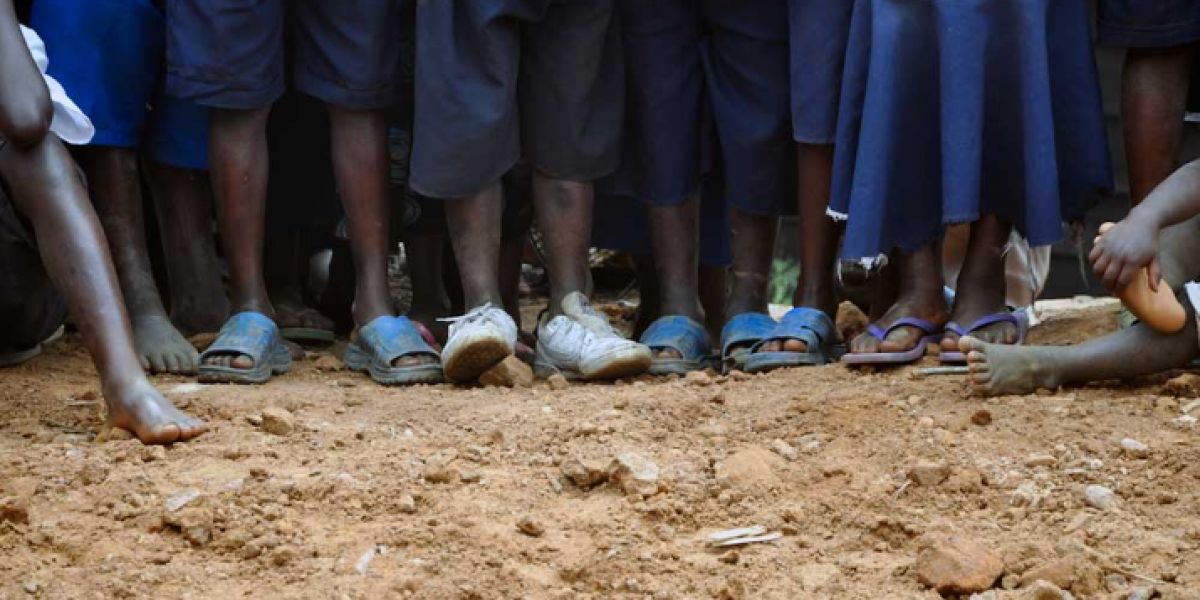Democratic Republic of Congo: Red Hand Day – Education Provides Children an Alternative
05 February 2015|Caitlin Hannahan, Communications Officer Jesuit Refugee Service Great Lakes Africa

“I went because there was nothing else to do.” Three former child soldiers sit on a bench in front of their former teacher and calmly explain their motivations for joining several armed groups surrounding the village.
Pierre, Luc and Niye come from an internally displaced persons (IDP) camp in Mweso, North Kivu in the Democratic Republic of Congo (DRC). With no jobs and little to eat, many children, some as young as eight, leave their families for more lucrative opportunities in the bush.
On 12 February, International Red Hand Day, the international community raises awareness of the plight of child soldiers all around the world. While Jesuit Refugee Service commends the steps taken by the Congolese government to end the recruitment of child soldiers, more steps need to be taken to provide educational and socio-economic alternatives for children in IDP camps.
Joining armed groups offers more attractive benefits than living in the camps. Recruiters falsely promise young children improved social status, full meals and a career. Many children’s current living situation provides no such thing – IDPs in Congo have no land to cultivate and very few job opportunities. Food is scarce, and few families can provide for all of their children.
“These children aren’t experiencing childhood as we know it,” explains Elettra Pauletto, a political analyst for DRC who spent a year working with ex-child soldiers in North Kivu. “It’s not this carefree innocent time. Many of them spend hours in manual labor, carrying heavy loads to help feed their families. Armed groups are an alternative to this drudgery.”
Deterring children from joining armed groups means providing future opportunities. Pierre, Luc and Niye all returned to pursue the possibility of vocational training in their villages. They hope to learn some carpentry skills to earn a bit of money and support their families.
Sister Esperance, JRS education coordinator in Masisi, agrees, “education and vocational training is absolutely integral in the camps, because it helps displaced children blend in with the host communities. It teaches them there are other ways to make money, other ways to live.”
Education, informal vocational training and even extracurricular activities provide a break from the monotony of camp life. They create a space for host communities and IDPs to break down social barriers and promote understanding.
Yet challenges remain. “JRS pays 50 percent of the school fees, but so many children still can’t cover the difference. In addition, being in school means you’re not working to find food for your family. That’s a hard choice to make,” explains Sister Esperance. “When children drop out, I visit them personally. I talk to their parents about the importance of staying in school. I explain what they can do with an education.”
Education is not a panacea. Children in IDP camps still face extreme challenges, including a non-existent economy, discrimination from host communities and cyclical violence. Yet skills-training, literacy and engaging with children of other ethnicities represent the first steps to creating stronger communities that counter the strong allure of armed groups.



